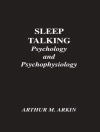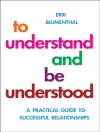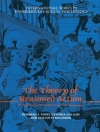Offers useful strategies for creating rapport between the linear-focused DSM-5-TR and the circular causality approach of systems-oriented clinicians
With a focus on clinical applications, this unique text for students of diagnosis, family systems, counseling, and other mental health disciplines demonstrates how to use the DSM-5-TR to aid assessment, diagnosis, treatment planning, and intervention from a relational perspective. With detailed descriptions, the second edition is updated to foster greater understanding of interpersonal problems associated with onset, progression, and expression of psychiatric systems while incorporating the specific parameters of parent, child, sibling, extended family, and significant other issues in overall clinical formulation.
The new edition delves more deeply into relational and cultural features, family systems assessment, family systems interventions, and ethical and legal implications when working with identified DSM-5-TR disorders. New case conceptualizations address the ‘new normal’ of working in a telehealth environment along with the impact of COVID-19 and racial and social injustice. Every chapter encompasses the latest DSM updates and current literature, and new chapter Test Banks and Power Points enhance the instructor resources. With each chapter focusing on a specific diagnosis or category of diagnoses, the book analyzes all DSM-5-TR domains, discusses the impact of diagnoses on the entire family, and introduces various assessments and interventions.
New to the Second Edition:
- Presents relational and cultural features in each chapter
- Updates case conceptualizations to address emerging trends in telehealth, COVID-19, and social injustice
- Embodies the latest DSM updates, current literature, and updated research
- New and updated chapter Test Banks and Power Points included in the instructor materials
Key Features:
- Guides the reader in understanding how to best integrate DSM-5-TR diagnoses from a systems perspective
- Applies systemic considerations to every identified disorder category in the DSM-5-TR
- Considers ethical and legal implications for each diagnosis
- Summary, case conceptualization, and discussion questions included in each chapter focusing on a disorder category
- Includes family systems contexts, assessments, interventions, and cultural considerations
Зміст
Contributors
Foreword by Mark D. Stauffer, Ph D, NCC
Preface
Acknowledgments
Chapter 1. The DSM 5-TR and Family Systems: Interdisciplinary Applications
Chapter 2. Systemic Levels in Neurodevelopmental Disorders
Chapter 3. Systems-Focused Therapy With Schizophrenia and Other Psychotic Disorders
Chapter 4. Relational Functioning: Understanding Bipolar and Related Disorders
Chapter 5. Depressive Disorders and Family Systems Issues
Chapter 6. Applying Systems to Anxiety Disorders
Chapter 7. Systemic Functioning of Obsessive-Compulsive and Related Disorders
Chapter 8. Trauma- and Stressor-Related Disorders: Systemic Processes
Chapter 9. Systems Applied to Dissociative Disorders
Chapter 10. Systemic Ecology in Understanding Somatic Symptom and Related Disorders
Chapter 11. Feeding and Eating Disorders: A Systemic Model
Chapter 12. Elimination Disorders: A Developmental Systems Perspective
Chapter 13. Multisystemic Dimensions of Sleep–Wake Disorders
Chapter 14. An Intersectional Systems Approach to Counseling Sexual Issues
Chapter 15. Gender Dysphoria and Systemic Meaning
Chapter 16. Disruptive, Impulse-Control, and Conduct Disorders: General Systemic Properties
Chapter 17. Family Systems and Substance-Related and Addictive Disorders
Chapter 18. Neurocognitive Disorders: Systemic Functionality
Chapter 19. Personality Disorders and Interconnectedness
Chapter 20. Systems-Focused Therapy With Paraphilic Disorders
Chapter 21. Future Trends and Directions with DSM-5-TR and Family Systems
Index
Про автора
Jason H. King, Ph D, CMHC, NCC, ACS, is the Psychotherapy Practicum Director for the Psychiatry Concentration Track in the Doctor of Medical Science (DMSc) degree at Rocky Mountain University of Health Professions.












